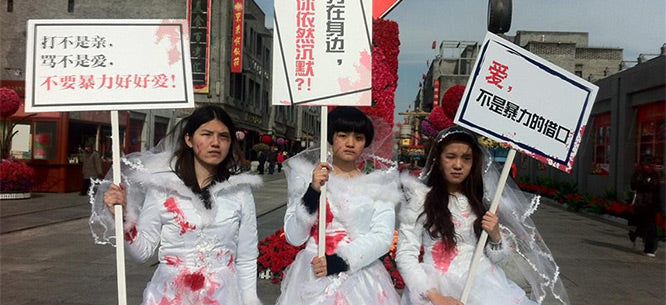Five Book Plan: Feminism and Gender in China
Verso author Leta Hong Fincher presents five essential texts on gender and feminism in China. Her new book, Betraying Big Brother, examines the struggles of feminists in China against the patriarchal authoritarianism of the Xi Jinping administration.

Mei Fong, One Child: The Story of China's Most Radical Experiment (Houghton Mifflin Harcourt, 2016)
Mei Fong has spent years documenting the policy’s repercussions on every sector of Chinese society. In One Child, she explores its true human impact, traveling across China to meet the people who live with its consequences. Their stories reveal a dystopian reality: unauthorized second children ignored by the state, only-children supporting aging parents and grandparents on their own, villages teeming with ineligible bachelors, and an ungoverned adoption market stretching across the globe. Fong tackles questions that have major implications for China’s future: whether its “Little Emperor” cohort will make for an entitled or risk-averse generation; how China will manage to support itself when one in every four people is over sixty-five years old; and above all, how much the one-child policy may end up hindering China’s growth.
Ed. Lydia H. Liu, Rebecca E. Karl and Dorothy Ko, The Birth of Chinese Feminism: Essential Texts in Transnational Theory (Columbia University Press, 2013)
He-Yin Zhen (ca. 1884-1920?) was a theorist who figured centrally in the birth of Chinese feminism. Unlike her contemporaries, she was concerned less with China's fate as a nation and more with the relationship among patriarchy, imperialism, capitalism, and gender subjugation as global historical problems. This volume, the first translation and study of He-Yin's work in English, critically reconstructs early twentieth-century Chinese feminist thought in a transnational context by juxtaposing He-Yin Zhen's writing against works by two better-known male interlocutors of her time.
Leslie T. Chang, Factory Girls: From Village to City in a Changing China (Penguin Random House, 2009)
China has 130 million migrant workers—the largest migration in human history. In Factory Girls, Leslie T. Chang, a former correspondent for the Wall Street Journal in Beijing, tells the story of these workers primarily through the lives of two young women, whom she follows over the course of three years as they attempt to rise from the assembly lines of Dongguan, an industrial city in China’s Pearl River Delta.
Gail Hershatter, Women and China's Revolutions (Rowman & Littlefield, 2018)
If we place women at the center of our account of China’s last two centuries, how does this change our understanding of what happened? This deeply knowledgeable book illuminates the places where the Big History of recognizable events intersects with the daily lives of ordinary people, using gender as its analytic lens. Leading scholar Gail Hershatter asks how these events affected women in particular, and how women affected the course of these events. For instance, did women have a 1911 revolution? A socialist revolution? If so, what did those revolutions look like? Which women had them?
Leta Hong Fincher, Leftover Women: The Resurgence of Gender Inequality in China (Zed, 2016)
In the early years of the People’s Republic, the Communist Party sought to transform gender relations. Yet those gains have been steadily eroded in China’s post-socialist era. Contrary to the image presented by China’s media, women in China have experienced a dramatic rollback of rights and gains relative to men. In Leftover Women, Leta Hong Fincher exposes shocking levels of structural discrimination against women, and the broader damage this has caused to China’s economy, politics, and development
